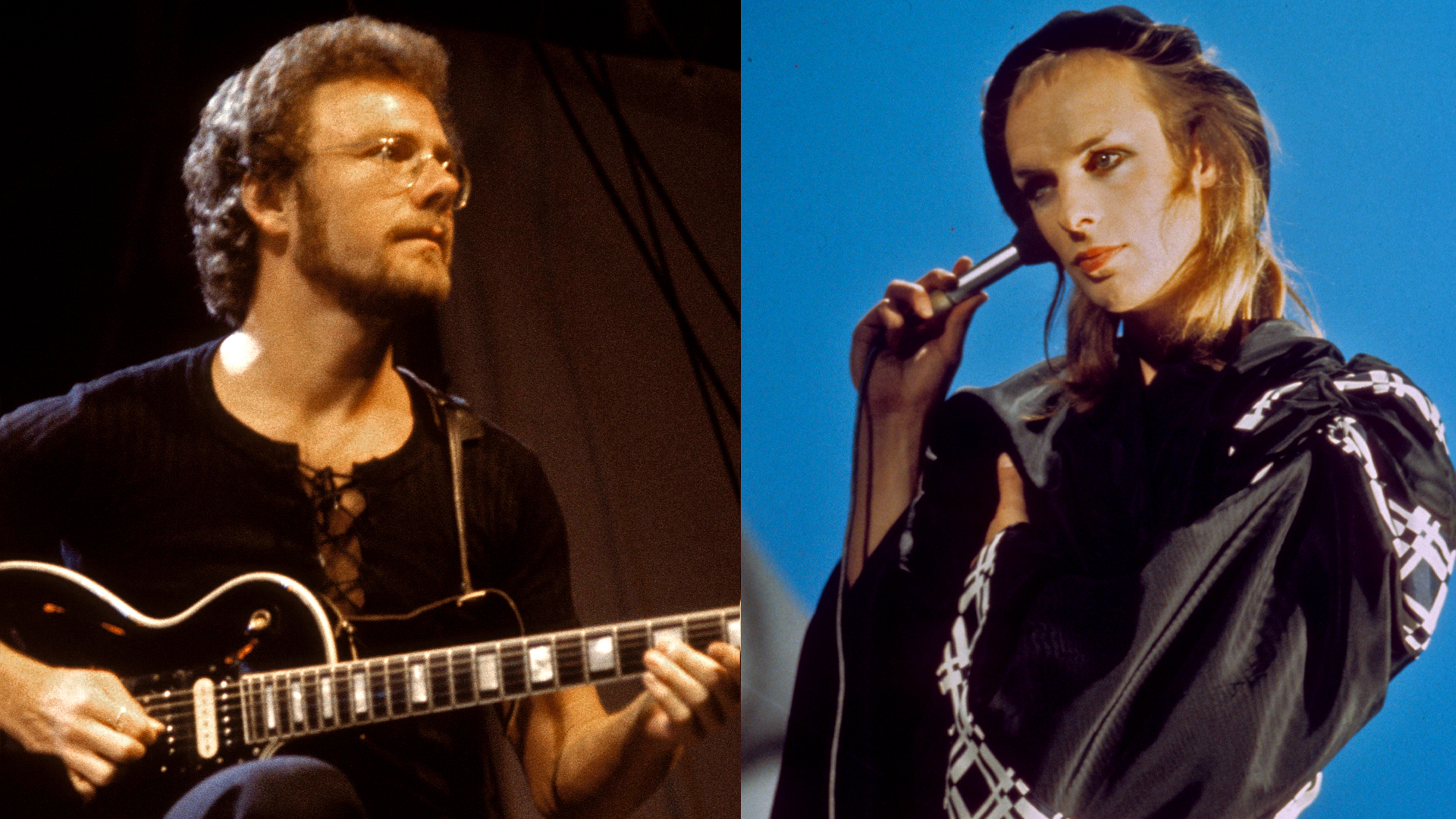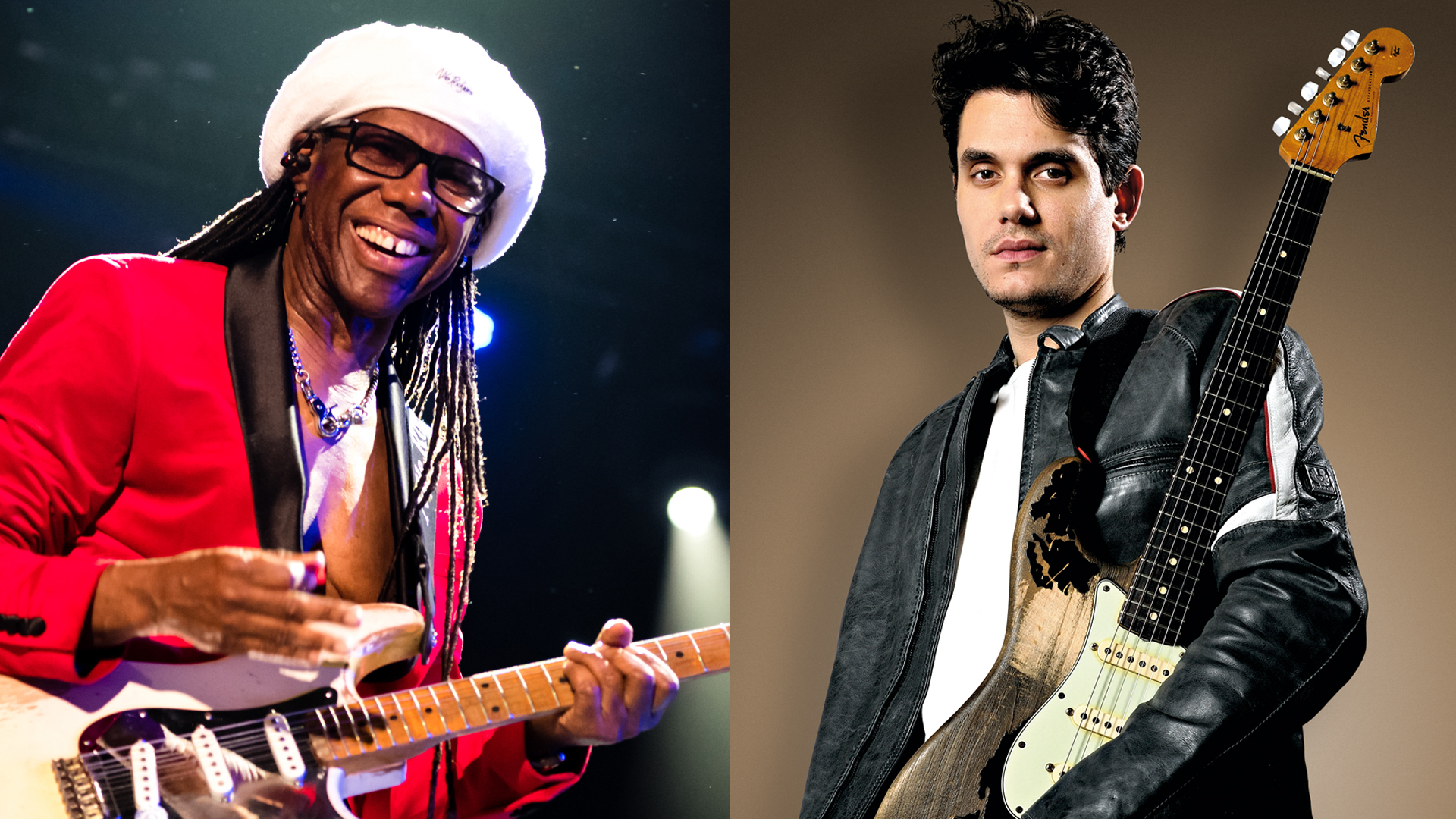“I had never heard the guitar quite sound like this.” Robert Fripp on the Brian Eno creation that made him feel truly “liberated” as a guitarist
The duo first worked together in 1972, an experience from which Fripp developed a unique guitar tone he would go on to make famous

All the latest guitar news, interviews, lessons, reviews, deals and more, direct to your inbox!
You are now subscribed
Your newsletter sign-up was successful
In 1972, Robert Fripp coaxed sounds out of a guitar that no one had imagined possible: an endlessly sustaining drone that shimmered, throbbed, and buzzed with electricity. The tones seemed alive, slowly shifting and mutating into layers of ambient texture that were at once hypnotic, mysterious, and unpredictable. Over this evolving bed of sound — sometimes ominous, sometimes serene — Fripp would solo, weaving melodies that pushed the music into uncharted dimensions.
He called the source of this sound Frippertronics, and it made its debut on (No Pussyfooting), his first of three collaborative albums with Brian Eno. The system, in fact, wasn’t his. Eno had created it using two Revox A77 reel-to-reel recorders arranged to create a tape delay system with a feedback loop. As Fripp played, his Gibson Les Paul electric guitar would be recorded, and delay would be added by the second tape machine, which fed the signal back to the first tape deck, creating an endless loop onto which new sounds could be added infinitely.
The idea wasn’t entirely new — early electronic music pioneers Terry Riley and Pauline Oliveros had experimented with similar tape setups years earlier — but Eno put it in Fripp’s hands on September 8, 1972, in Eno’s London home studio. That first night yielded “The Heavenly Music Corporation,” a 21-minute immersion that filled side one of (No Pussyfooting), released the following year.
This initial session was the pair's first and arguably most extraordinary collaboration, and it contains some of the guitarist's most inspired and transcendent playing. Fripp would go on to fine tune the system and adopt it for both studio and live performances. His girlfriend Joanna Walton dubbed it Frippertronics for a 1977 performance in New York City. Two years later, it received its first wide exposure in an remarkable performance on the TV show Midnight Special.
Fripp addressed the recording of (No Pussyfooting) in a 1982 issue of Musician magazine, in which he interviewed guitarist John McLaughlin about his life and work. At one point, McLaughlin turned the tables to question Fripp about his own music, and Fripp remarked that he thought his guest might enjoy (No Pussyfooting).
“It’s all improvised, I mean, it's purely improvised,” he said. “I had just met with the fellow [Eno] and had gone and spent the evening with him with a glass of wine and coffee — this was in 1972 — and he had a system of recording with two Revoxes.
"He didn't explain it to me and I didn't know what it would sound like, but I plugged in and played. It was simply, 'There you are — do it.'
All the latest guitar news, interviews, lessons, reviews, deals and more, direct to your inbox!
“I had never heard the guitar quite sound like this," Fripp continued, "yet it provided me with the technical facility for getting a sound which I had been hearing on the inside for about five years, but had never managed to get.”
Asked by McLaughlin how he felt working within that domain, Fripp didn’t beat around the bush.
“Liberated is the word,” he said. “I had a lot of difficulty working with other musicians, because I’m not a forceful player, and I have a lot of difficulty with enthusiastic drummers thundering around. So just to be able to develop at my own speed, without any useful suggestions…really was liberating.”
(No Pussyfooting) was a revelation for listeners, and there were many in its day..The album sold more than 100,000 copies — astonishing for such a radical, improvised work. It remains as fresh and vibrant today as it did more than half a century ago.
Christopher Scapelliti is editor-in-chief of GuitarPlayer.com and the former editor of Guitar Player, the world’s longest-running guitar magazine, founded in 1967. In his extensive career, he has authored in-depth interviews with such guitarists as Pete Townshend, Slash, Billy Corgan, Jack White, Elvis Costello and Todd Rundgren, and audio professionals including Beatles engineers Geoff Emerick and Ken Scott. He is the co-author of Guitar Aficionado: The Collections: The Most Famous, Rare, and Valuable Guitars in the World, a founding editor of Guitar Aficionado magazine, and a former editor with Guitar World, Guitar for the Practicing Musician and Maximum Guitar. Apart from guitars, he maintains a collection of more than 30 vintage analog synthesizers.

